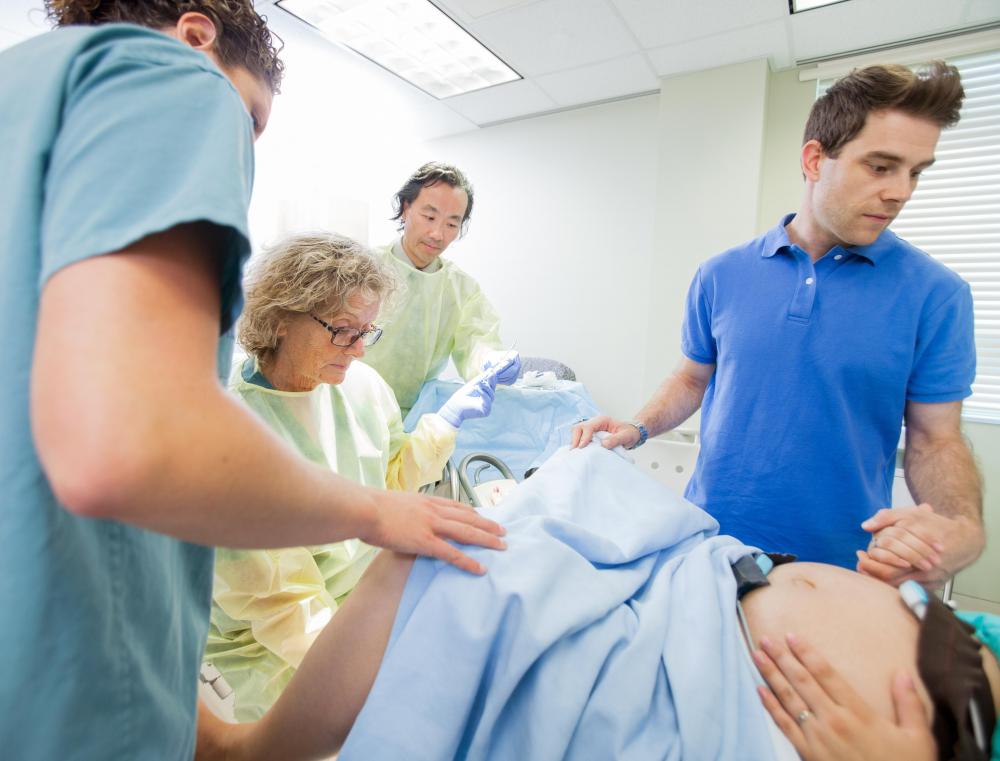At TheHealthBoard, we're committed to delivering accurate, trustworthy information. Our expert-authored content is rigorously fact-checked and sourced from credible authorities. Discover how we uphold the highest standards in providing you with reliable knowledge.
What Are Umbilical Cysts?
Umbilical cysts are pockets of tissue or fluid on an umbilical cord that can appear anywhere along its length and are sometimes indicators of a problem with the fetus. A doctor can identify a cyst during an ultrasound examination and might request follow-up testing to find out more about what is inside the cyst and whether it is a cause for concern. In some cases, it might not be an issue, and the mother might be able to deliver her baby safely and with minimal risk.
There are two broad categories of umbilical cysts: true and false cysts. True cysts tend to contain umbilical cells, and false umbilical cysts typically are filled with fluid, often derived from the Wharton jelly that normally insulates the umbilical cord. The prognosis for the patient can vary, depending on the type of cyst, and doctors might want to determine whether it is possible to get a biopsy sample from the cyst to check on its contents.

False cysts can be associated with congenital disorders. They are more common along the fetal end of the umbilical cord. If a doctor spots umbilical cysts in this area, he or she might recommend some genetic testing to determine whether the mother carries deleterious genes. The doctor also can recommend testing the developing fetus for signs of a disorder. It might also be advisable to consider a cesarean section for delivery, because the cyst could rupture during labor and delivery and might put the mother and baby at risk.

If the fetus does have a congenital condition, the doctor and patient can discuss the options. It can be difficult to determine the severity of a condition in the womb, and the doctor might tell the mother the range of presentations seen with the disorder to give the her an idea of what she might be able to expect. Expecting mothers might also find it helpful to contact support groups and research organizations to learn more about the level of care that the baby might require and what kind of quality of life he or she might have.

As with many unexpected events during pregnancy, there is nothing specific that parents can do to prevent umbilical cysts. These growths can develop for a wide variety of reasons, but environmental factors that can be controlled by the parent are generally not among them. It is important for a doctor to evaluate a cyst and to be aware that not all of them are dangerous and that they do not necessarily indicate that there will be a problem with the baby. Thorough evaluation can help the patient and doctor decide how to move forward with treatment and management of the pregnancy.
AS FEATURED ON:
AS FEATURED ON:


















Discuss this Article
Post your comments